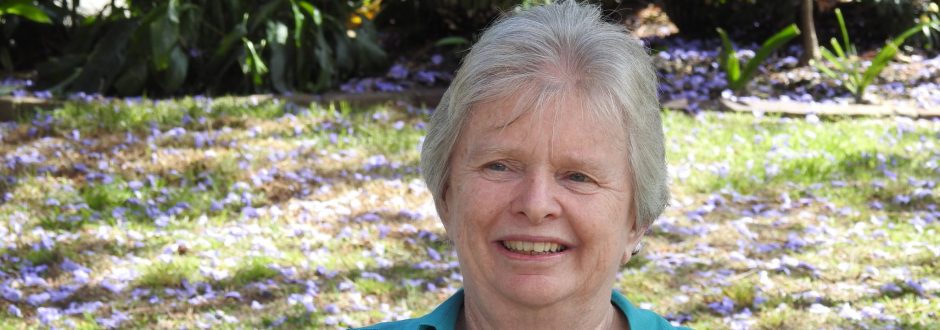May we older Australians find new ways to listen more intently to the aspirations of our younger generations, says Good Samaritan Sister Clare Condon.
BY Clare Condon SGS
A few experiences I’ve had over the past week have reinforced my faith and confidence in the goodness of young people.
At the Australian Human Rights Commission’s “RightsTalk” event, where I gave a presentation on sanctioned violence and its impact on society and our relationships, I was delighted to see young students representing their schools. Their questions and comments were insightful and thought-provoking. It was obvious that they want to be involved in conversations about important social issues and their impact on society.
Two days later I addressed a college assembly at St Scholastica’s in Sydney for their Foundation Day. This is a biennial event during which the entire college community focusses on key social justice issues in our world community.
The students had a choice of 30 workshops which covered a vast array of issues presented by people who are informed and involved in seeking justice within their chosen area.
A Kiribati woman, Maria Timon, spoke of the impact of rising sea levels on her nation; a group from ChilOut outlined their efforts to free children from detention; students from other Good Samaritan Colleges shared their experiences of visiting the Indigenous community of Santa Teresa in the Northern Territory; Sister Michelle Reid SGS talked about her work assisting homeless women and children at The Good Samaritan Inn in Melbourne; Pat Farmer, ultra-marathon runner, spoke about “sport for a cause”; Sister Kathleen Burke SGS shared her experiences of the L’Arche community, which is celebrating its fiftieth anniversary this year; and two ex-students of St Scholastica’s, Kaiya Aboagye and Shekara Hartnett, spoke about the group, Social Enterprise, and its amazing work among Indigenous women.
This is just a selection of the workshops that were on offer, illustrating some of the activities where human compassion is prominent in our community.
My workshop with senior students was called “Leadership for Justice”. After spending a couple of hours with these young people, I was energised and encouraged by what we shared together. As a basis for the workshop, I used a recent article by Minda Zetlin, which refers to the writings of Jeffrey Krames, a business author, who has examined why Pope Francis is such an effective leader and what we could all learn from his style.
Krames notes that Pope Francis has an 88 per cent approval rating among American Catholics. Many world leaders would envy such a rating. So what does Pope Francis bring to his leadership which distinguishes him from many leaders in politics and business today?
First and foremost he is a man of justice, a man of the Gospel. The attributes that Krames identifies in him are clear: he is a man of the people – of all people – not just the 1.2 billion Catholics for whom he is pastor; and he is prepared to embrace risk and be a reformer. It is his gift of patience and his skill in networking that enable him to be such a reformer. He is present to the people he wishes to serve and to lead. In doing so, he is listening to all the voices – including the diverse perceptions – and this has been critically important to his leadership. And finally, Pope Francis is leading by example; he is a man of fundamental humility.
I found that the students I was sharing with were very much in tune with these attributes and values. They could easily identify what these attributes look like in leaders and when they are missing.
They discussed the factors that can hold us back from embracing risk and being reformers where justice is needed. We shared the fears and anxieties that can paralyse people from speaking truth to those in power. They shared how young people can identify very quickly those who speak for justice, but do not act accordingly.
With negativity about young people often portrayed in the media, these last few days have been enriching and a blessing for me. They have given me renewed hope.
I believe we as a nation need to place greater emphasis on the good that young people exercise in the community. They want to be involved and they want their voices to be heard. May we older Australians find new ways to listen more intently to the aspirations of our younger generations.
